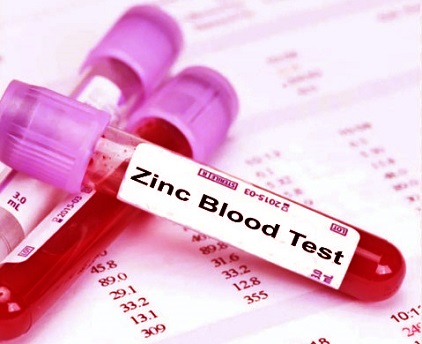Nikhil Prasad Fact checked by:Thailand Medical News Team Oct 22, 2024 1 year, 1 month, 3 weeks, 1 day, 12 hours, 4 minutes ago
Medical News: A recent study conducted by researchers from Juntendo University in Tokyo has uncovered a significant link between serum zinc concentration and the severity of COVID-19. This cross-sectional study sheds light on how zinc levels in the body might influence the outcomes of COVID-19 in hospitalized patients, highlighting an often-overlooked factor in patient care.
 Japanese study finds that zinc levels linked to COVID-19 severity
Japanese study finds that zinc levels linked to COVID-19 severity
Zinc has long been recognized as an essential micronutrient, playing a critical role in immune function. However, its potential impact on the severity of viral infections like COVID-19 is only starting to come into focus. The findings from this study add to the growing body of evidence that zinc deficiency could be a risk factor for more severe cases of COVID-19.
Background
The coronavirus disease (COVID-19), caused by the SARS-CoV-2 virus, has wreaked havoc globally since 2020. While much has been learned about the virus and its effects on the body, certain risk factors for severe disease remain under investigation. This
Medical News report highlights the growing interest in zinc’s role in mitigating the severity of COVID-19 infections.
Zinc is a vital trace element needed for various bodily functions, including immune responses, DNA synthesis, and cellular repair. Zinc deficiency has been linked to an increased risk of infections, respiratory diseases, and even impaired wound healing. As COVID-19 can lead to severe respiratory issues, researchers have become particularly interested in zinc’s role in fighting this viral infection.
The Study’s Objectives
The research team from Juntendo University, including Dr Naomi Matsumoto, Dr Hirohide Yokokawa, and others, aimed to assess whether there was a measurable association between serum zinc levels and the severity of COVID-19 among Japanese inpatients. The study involved 467 adult patients admitted to the hospital for COVID-19 treatment from April 2020 to August 2021. Their serum zinc levels were measured upon admission, and the patients were classified into three categories based on zinc levels: deficiency (less than 60 μg/dL), marginal deficiency (60-80 μg/dL), and normal (above 80 μg/dL).
Key Findings
The study found that a significant proportion of COVID-19 patients suffered from zinc deficiency or marginal zinc deficiency. Specifically, 39.5% of women and 36.4% of men in the study had zinc deficiency, while the rates of marginal deficiency were even higher (54.3% for women and 57.0% for men).
The researchers used statistical methods, including multivariate logistic regression, to analyze the relationship between zinc levels and COVID-19 severity. After adjusting for factors such as age, sex, and comorbidities, they found that patients with zinc deficiency were 3.6 times more likely to develop severe COVID-19 compared to those with marginal or normal zinc levels.
Moreover, the study demonstrated a clear inver
se relationship between serum zinc concentration and disease severity. In other words, the lower a patient’s zinc levels, the more severe their COVID-19 symptoms were likely to be. Notably, patients with moderate or severe COVID-19 had significantly lower zinc levels than those with milder cases.
Why Zinc Deficiency Matters
Zinc plays a crucial role in maintaining the body’s immune response. It is involved in regulating the activity of T-cells, which are essential for fighting infections, and macrophages, which help to remove pathogens and infected cells. A deficiency in zinc can impair these processes, leading to a weakened immune response and making the body more vulnerable to infections like COVID-19.
Furthermore, zinc is involved in controlling inflammation, a key factor in severe COVID-19 cases. Patients with low zinc levels may experience more severe inflammation, which can lead to complications such as acute respiratory distress syndrome (ARDS), a common cause of death in COVID-19 patients.
The study highlights that zinc’s importance goes beyond just fighting off infections. It is also vital for minimizing the severity of diseases once an infection takes hold.
Implications for Patient Care
The study’s findings suggest that measuring and managing zinc levels could be an important aspect of treating COVID-19, particularly in severe cases. Physicians could consider zinc supplementation as part of a broader treatment plan, especially for patients showing signs of deficiency.
Moreover, the research raises important questions about whether routine screening for zinc deficiency should become standard practice for hospitalized COVID-19 patients. This could help identify individuals at higher risk of severe disease early in their treatment, potentially leading to better outcomes.
Limitations of the Study
While the results of this study are significant, the researchers caution that there are limitations to their findings. The study was conducted at a single medical center, meaning that the results might not be fully generalizable to other populations or regions. Additionally, the study’s cross-sectional design means that it can only show associations between zinc levels and COVID-19 severity, not direct causality.
Further research is needed to confirm these findings in larger and more diverse populations. Longitudinal studies that follow patients over time could help determine whether zinc supplementation can reduce the severity of COVID-19 in deficient individuals.
Conclusion
The study provides compelling evidence that zinc deficiency is associated with more severe cases of COVID-19. These findings emphasize the importance of considering zinc levels in the management and treatment of COVID-19 patients. In the future, assessing zinc levels could become a critical part of treating this and other respiratory infections, especially in patients at higher risk for severe disease.
The researchers concluded that "serum zinc deficiency was significantly associated with severe cases of COVID-19 compared to marginal deficiency and normal levels. In addition, the severity of COVID-19 was significantly related to the serum zinc concentration." This suggests that ensuring adequate zinc levels in patients could help reduce the severity of COVID-19 and potentially improve patient outcomes.
The study findings were published in the peer-reviewed International Journal of General Medicine.
https://www.tandfonline.com/doi/full/10.2147/IJGM.S476578
For the latest COVID-19 News, keep on logging to Thailand
Medical News.
Read Also:
https://www.thailandmedical.news/news/new-insights-into-zinc-s-role-in-fighting-covid-19
https://www.thailandmedical.news/news/zinc-s-role-in-immunity-and-its-impact-on-covid-19
https://www.thailandmedical.news/news/higher-dietary-iron-and-zinc-intake-are-associated-with-decreased-risk-of-covid-19-infection-and-hospitalization
https://www.thailandmedical.news/news/covid-19-treatments-taiwanese-study-finds-that-zinc-supplements-enhances-certain-repurposed-drugs-efficacy-against-sars-cov-2
